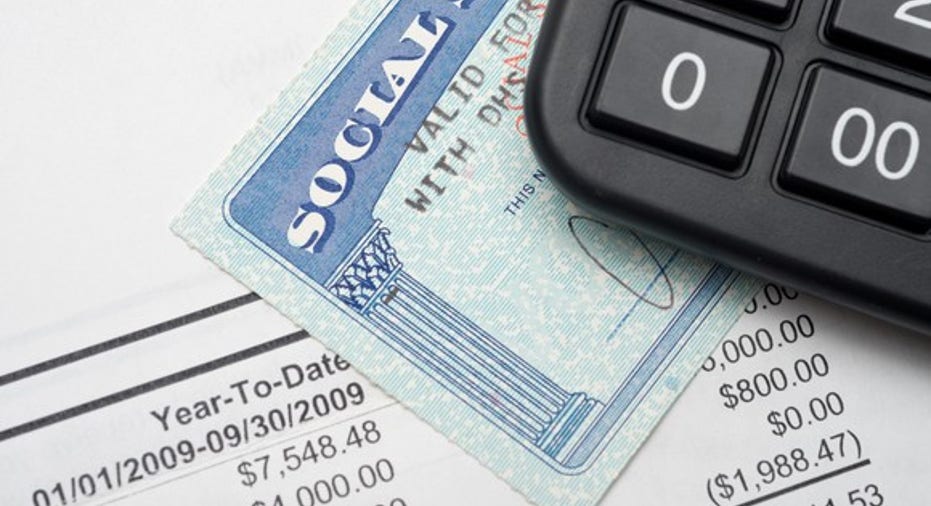How to Get Social Security Benefits if You've Never Worked a Day in Your Life

Social Security benefits are based on the amount of income you earned during your working life. So if you never had a paid job, or if you earned less than the minimum qualifying amount over your lifetime, does that mean you can never have Social Security benefits? Not necessarily -- thanks to the spousal benefits option.
How big are spousal benefits?
Once you hit age 62, if your spouse is currently receiving either retirement or disability benefits from Social Security, you too can receive benefits -- up to one-half your spouse's benefits (not including delayed-retirement credits). If you earn Social Security benefits on your own but the amount of your benefits is less than one-half your spouse's retirement benefits, you can receive additional spousal benefits to bring you up to the one-half limit.
However, like standard Social Security benefits, spousal benefits do suffer from an early-retirement penalty. If you start taking the benefits as soon as you hit age 62, your benefit checks will be permanently reduced. The formula works as follows: If you retire and start claiming benefits one to 36 months before your full retirement age,your benefits will be reduced by roughly 5/9 of 1% per month you retired early. If you retire even earlier than 36 months before your full retirement age, your benefit will be reduced by 5/12 of 1% per month beyond the 36-month mark."Normal retirement age" is calculated based on your birth date; if you were born after 1959, it's age 67.
Image source: Getty Images.
Survivors benefits
If your spouse has died, and he or she qualified for Social Security benefits, you can receive what are called survivors benefits. Survivors benefits are more generous than spousal benefits: If you wait until full retirement age to claim your benefits, you can get 100% of your deceased spouse's benefit amount. You can claim survivors benefits as early as age 60, but your benefits will be reduced by that pesky early-retirement penalty. If you're disabled, you can claim the benefits as early as age 50; again, the benefit amount would be permanently reduced for claiming the benefits that early. If you qualify for survivors benefits, you may also be eligible for a lump-sum death payment of $255.
Spousal benefits if you're divorced
If you're not married at the time you hit retirement age, you still have a shot at getting spousal benefits. If you're divorced but your marriage lasted at least 10 years, and your former spouse is entitled to retirement and/or disability benefits, and you're currently unmarried, then you're eligible for spousal benefits just as if you were still married to the qualifying ex-spouse.If your ex-spouse has died before you hit age 62 but you meet all the other requirements for claiming spousal benefits, you can claim survivors benefits just as though you hadn't been divorced.
Claiming your benefits
Claiming spousal benefits can be done through the same application process as claiming standard Social Security benefits. In fact, if you apply for Social Security benefits at the same time as your spouse, or if your spouse is already receiving benefits when you apply, the Social Security Administration will automatically check to see if you are eligible for spousal benefits and will sign you up for said benefits if you are.
Applying for survivors benefits is a little more complicated. Unlike standard and spousal Social Security benefits, you can't apply for survivors benefits online. You'll need to call Social Security and request an appointment to start the application process. However, if you're already receiving spousal benefits at the time your spouse dies, you will automatically be switched over to survivors benefits -- which means your benefits will likely increase significantly.
The $16,122 Social Security bonus most retirees completely overlook If you're like most Americans, you're a few years (or more) behind on your retirement savings. But a handful of little-known "Social Security secrets" could help ensure a boost in your retirement income. For example: one easy trick could pay you as much as $16,122 more... each year! Once you learn how to maximize your Social Security benefits, we think you could retire confidently with the peace of mind we're all after.Simply click here to discover how to learn more about these strategies.
The Motley Fool has a disclosure policy.



















